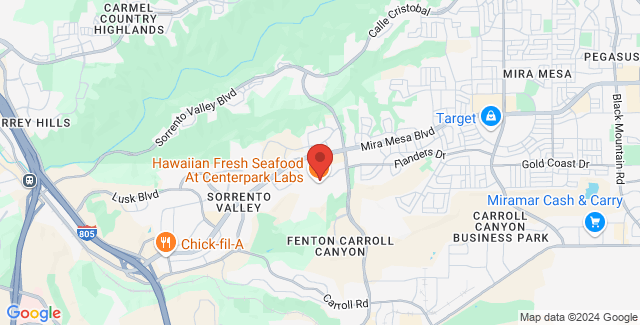Prescribing Heart Failure with Onglyza®
Patients taking the type 2 diabetes medication Onglyza® have experienced heart failure and other serious complications that may be connected to this drug. At least one heart failure death has been alleged in an Onglyza® lawsuit, and other cases continue to emerge as patients connect adverse health events with prescription drug treatment.

Onglyza® patients have suffered heart failure and other cardiac complications, as well as pancreatitis, kidney infections. and joint problems. There are also potential links to pancreatic cancer. Our legal team is offering complimentary case evaluations to patients who may have been injured after taking Onglyza®. Please contact an experienced defective drug attorney to arrange your consultation.
About Prescription Onglyza®
Onglyza® is the brand name for the generic drug saxagliptin, which was patented by the AstraZeneca corporation. The pharmaceutical giant also co-manufacturers Kombiglyze XR®, which combines saxagliptin and another widely prescribed diabetes drug, metformin. Both are DPP-4 inhibitors that are designed to help control blood sugar in type 2 diabetic patients through incretin-based therapy.
Saxagliptin works by preventing the liver from producing an excessive amount of glucose, and by stimulating the pancreas to secrete more insulin. This helps diabetic patients control their blood sugar levels and avoid fluctuations between meals. Released to doctors and patients in 2009, Onglyza® has been marketed as an effective treatment for diabetes without causing weight gain, which is a common side effect of other diabetes medications.
At least one heart failure death has been alleged in an Onglyza® lawsuit, and other cases continue to emerge as patients connect adverse health events with prescription drug treatment.
Onglyza® has been a very successful drug financially, and is well on its way to blockbuster status. Thousands of prescriptions are written each year to patients around the world. Sales were reported to be $786 million in 2015, and are projected to reach $2.4 billion in revenue by 2018.
However, this apparent success has been marred by reports of serious complications in patients. In 2014, the U.S. Food and Drug Administration (FDA) publicly released information about potential problems connected to use of Onglyza® and Kombiglyze XR®.
Heart Failure Connection
In February 2014, the FDA published a drug safety communication warning doctors and patients about the results of a study published in the New England Journal of Medicine in October 2013. The randomized, double-blind, placebo-controlled study reported a higher rate of hospitalization related to heart failure in patients taking saxagliptin. The study of 16,492 patients in 2010 and 2011 found that 3.5 percent of saxagliptin patients were hospitalized versus 2.8 percent of the placebo group. This represents a 27 percent increased risk of hospitalization for heart failure in Onglyza® patients.
This study, known as the SAVOR (Saxagliptin Assessment of Vascular Outcomes Recorded in Patients with Diabetes Mellitus) later prompted further action from the FDA. In April 2016, the agency published an official warning about life-threatening heart failure potentially connected to Onglyza® and Kombiglyze XR®, as well as other DPP-4 inhibitor medications.

If you have been injured by a defective drug, Speak with an Attorney
The SAVOR study had reported some ominous conclusions about patient outcomes. Not only was there an increased risk of hospitalization for heart failure and major cardiac events, but also increased risk of death. The report stated “a potential increase in all-cause mortality with saxagliptin” with a 5.1 percent death rate as compared to 4.6 percent in patients given a placebo.
In October 2015, a lawsuit filed by a Chicago woman blamed the death of her mother on AstraZeneca. The wrongful death case claims that Lillie Ree Gibson died from heart complications after taking Onglyza® to treat her type 2 diabetes.
About Heart Failure
Many people believe that heart failure and heart attack are the same condition, but this is inaccurate. A heart attack causes damage to the heart muscle when blood flow to the heart is suddenly blocked. This is typically caused by a blood clot that has built up in the coronary artery.
Heart failure is usually a long-term (chronic) condition, though it can occasionally present suddenly. The condition occurs when the heart begins to weaken and is less able to effectively pump blood.
The heart circulates oxygen-rich blood throughout the body. When the blood is moving more slowly because of a weakened cardiac muscle, it increases pressure on the heart and can cause further deterioration. Heart failure may affect only one side of the heart, but more commonly affects both sides.
When blood is not efficiently pumped into the body, it can cause further complications. Fluid may build up in the lungs, liver, gastrointestinal tract, and extremities. Also referred to as congestive heart failure, this can result in difficulty breathing, organ failure, and potentially death.
Symptoms of heart failure can be vague and indicative of other problems, so the condition is often left untreated. Symptoms of heart failure may include:
- Cough
- Fatigue
- Weakness (feeling faint)
- Swollen feet and ankles
- Weight gain (from water retention)
- Loss of appetite
- Night-time urination
- Heart palpitations or irregular heartbeat
- Shortness of breath (experienced when you are active or after you lie down)
- Swollen abdomen
If you experience several of these symptoms at the same time, it is important to call your doctor or head to the emergency room. Heart failure can be diagnosed with the help of an echocardiogram, imaging studies, and blood tests.
If you are diagnosed, your doctor will likely recommend changes to your diet and exercise routine, in addition to medication to prevent the condition from becoming worse. If heart failure is severe and ongoing, some patients may benefit from surgery, such as coronary bypass, angioplasty, heart valve surgery, or the installation of a pacemaker.
Other Onglyza® Complications
Other potential Onglyza® complications are also serious and life-threatening. Saxagliptin has been associated with pancreatitis, and a potential link to pancreatic cancer has been reported. The FDA issued a 2013 Safety Communication warning the public about possible connections between incretin mimetic drugs, including Onglyza®, and these pancreatic conditions.
A study reported in a 2013 publication of the American Diabetes Association showed development of pre-cancerous tumors in the pancreases of autopsied patients who had taken incretin therapy drugs. Additionally, the SAVOR study also noted an increased risk of acute pancreatitis among several “adverse events of special interest” in patients taking saxagliptin.
Fluid may build up in the lungs, liver, gastrointestinal tract, and extremities. Also referred to as congestive heart failure, this can result in difficulty breathing, organ failure, and potentially death.
Acute pancreatitis, or inflammation of the pancreas, can be a life-threatening condition and can develop into chronic pancreatitis. Chronic cases are often debilitating, and have also been linked to pancreatic cancer. Other adverse events found in the SAVOR study included renal (kidney) abnormalities, and infections.
In addition to these complications, patients have also reported severe and persistent joint pain after taking saxagliptin, prompting the FDA to issue a safety communication warning doctors and patients of the risk.
Onglyza® Litigation
Patients must be able to trust that a drug treatment that is prescribed by their physician and approved by the FDA is safe and effective. Our civil courts have been inundated with lawsuits against pharmaceutical corporations in recent years, and many have involved type 2 diabetes treatments. Settlements and courtroom payouts for patients suffering complications from Actos® or Avandia have totaled billions of dollars, with more cases pending. Onglyza® and Kombiglyze XR® are among the newer drugs subject to legal action, along with Invokana® and many others.
Doctors and patients must be properly warned about all potential serious complications before a medication is prescribed. If you have taken Onglyza®, Kombiglyze XR® or another drug and suffered a life-altering complication, you may be entitled to significant compensation.
Contact an Experienced Attorney
Our defective drug lawyers have helped thousands of plaintiffs pursue compensation after suffering pharmaceutical injuries. If you or a loved one experienced heart failure or other adverse complication after taking a prescription medication, please contact our legal team today to arrange a free consultation.




